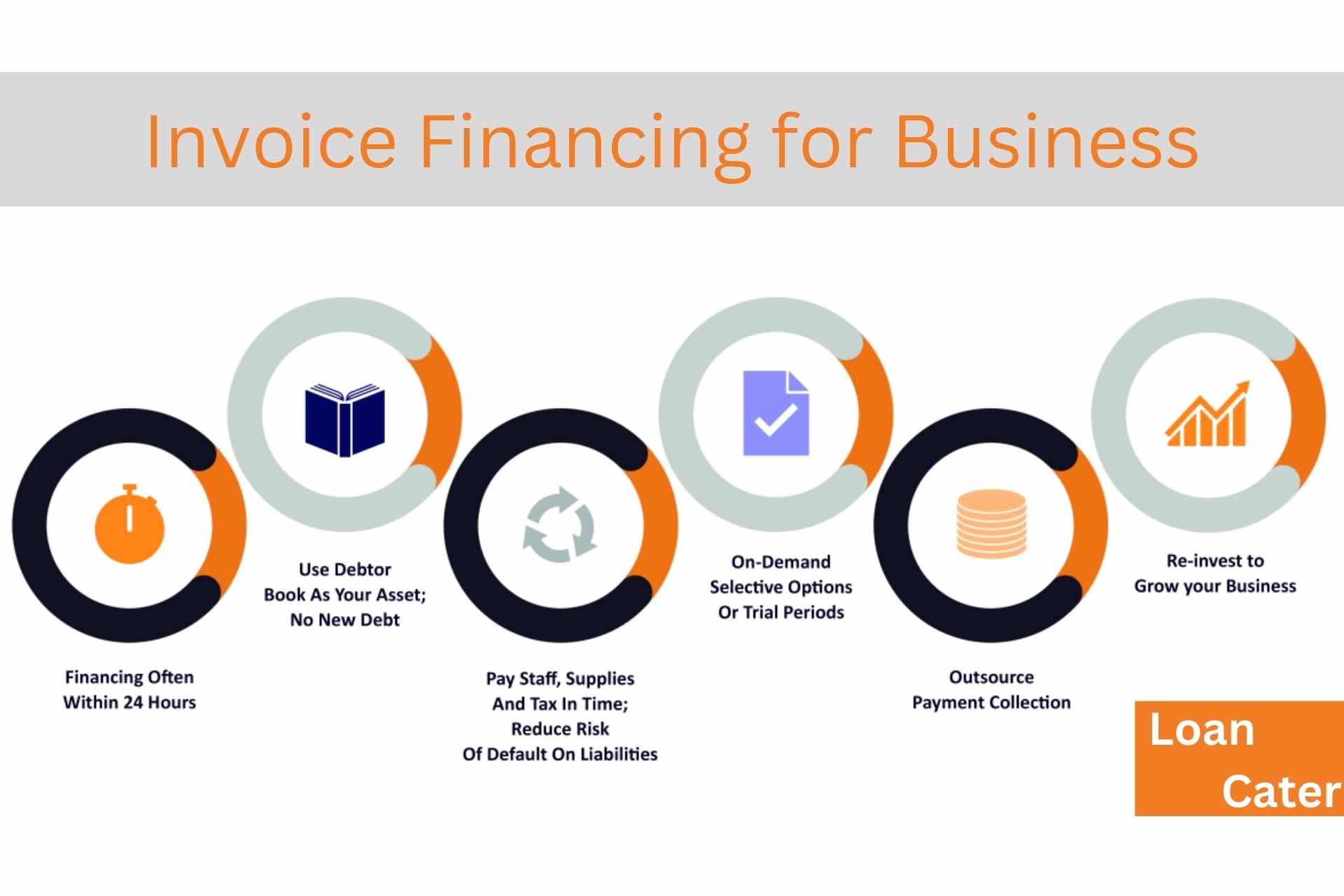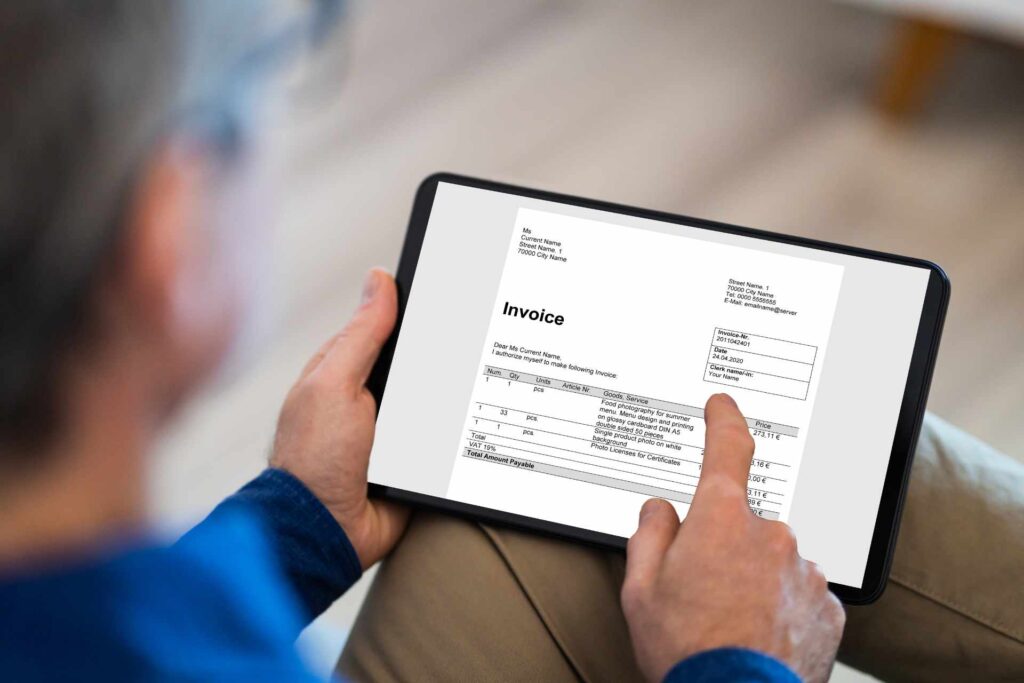In the ever-evolving landscape of small businesses, maintaining a healthy cash flow is often a critical challenge. Whether you’re a budding entrepreneur or a seasoned business owner, you’re likely familiar with the age-old dilemma of unpaid invoices. These outstanding bills can significantly disrupt your financial stability and hinder your growth prospects. But fret not, for there’s a financial tool that can help you bridge this gap – Invoice Financing.
Understanding Invoice Financing
At its core, invoice financing is a financial arrangement that allows businesses to sell their unpaid invoices to a lender (usually a financial institution or an online platform) in exchange for a sum of immediate cash. This financial maneuver empowers businesses to access the funds tied up in unpaid invoices swiftly, instead of waiting for customers to settle their bills.
The Mechanics of Invoice Financing
Here’s how it works: Let’s say your small business has provided services or delivered products to a client, and you’ve issued an invoice with a 30-day payment term. However, you need funds urgently to cover operational costs, take advantage of growth opportunities, or simply maintain a steady cash flow. This is where invoice financing steps in.
You approach an invoice financing provider, who evaluates the creditworthiness of your client rather than your business. If the client is deemed creditworthy, the lender advances you a significant percentage (typically around 80-90%) of the invoice’s total value. You get immediate access to the cash you need, while the lender assumes the responsibility of collecting payment from your client. Once the client pays the invoice, the lender deducts their fee and remits the remaining balance to you.
Types of Invoice Financing
1. Factoring
Factoring involves selling your invoices to a factoring company at a discount. We’ll explain the nuances and variations within factoring.
2. Invoice Discounting
Invoice discounting is a more discreet form of financing where you retain control over customer relationships. We’ll explore how it differs from factoring.
3. Spot Factoring
Spot factoring allows you to finance individual invoices, providing flexibility in your financing strategy.
The Benefits of Invoice Financing
- Enhanced Cash Flow: By transforming unpaid invoices into working capital, invoice financing bolsters your cash flow, enabling you to meet your financial obligations and pursue growth opportunities.
- Flexibility: Unlike traditional loans, invoice financing is more flexible. You can choose which invoices to finance, giving you control over when and how you access funds.
- Speed and Convenience: The application process for invoice financing is typically quicker and less cumbersome than traditional loans. This makes it an ideal solution for businesses needing rapid access to capital.
- Risk Mitigation: Invoice financing providers often assume the credit risk associated with your clients. This shields your business from potential losses due to non-payment.
Is Invoice Financing Right for Your Small Business?

While invoice financing offers numerous advantages, it may not be suitable for every small business. Consider these factors before diving in:
- Client Dependence: Since the lender assesses your client’s creditworthiness, your business’s credit history matters less. However, this means you’re still dependent on your client’s ability to pay.
- Cost: Invoice financing comes at a cost, typically in the form of a fee or interest rate. Ensure that the benefits outweigh these expenses for your business.
- Long-Term Strategy: Invoice financing is excellent for short-term cash flow issues but may not be a sustainable solution for long-term financial stability.
Comparing Invoice Financing to Traditional Loans
| Invoice Financing | Traditional Bank Loans |
|---|---|
| Accessibility: Easier access |
Accessibility: Stringent requirements |
| Speed: Quick access |
Speed: Longer approval process |
| Collateral: No need for collateral |
Collateral: Collateral requirements |
| Creditworthiness (Borrower): Not heavily weighted |
Creditworthiness (Borrower): Heavily weighted |
| Repayment: Flexible |
Repayment: Fixed payments |
| Cost: Transparent costs |
Cost: Interest rates and fees |
| Use of Funds: Working capital and growth opportunities |
Use of Funds: Versatile |
Conclusion
Invoice financing can be a game-changer for small businesses striving for financial stability and growth. It offers the freedom to convert unpaid invoices into immediate cash, providing the financial flexibility required to navigate the unpredictable terrain of entrepreneurship. However, it’s crucial to assess your business’s unique needs, costs, and long-term goals before embracing this financial tool. When used strategically, invoice financing can empower your small business to thrive and prosper in today’s competitive landscape.
FAQs about invoice financing
How do I apply for invoice financing?
Contact an invoice financing provider, complete an application, and provide necessary documentation such as invoices and customer details.
How can I use funds obtained through invoice financing?
Funds can be used for various purposes, including covering operating expenses, expanding the business, or seizing growth opportunities.
What role does creditworthiness play in invoice financing?
Lenders focus more on the creditworthiness of the invoiced customers rather than the business itself.
How does invoice financing compare to traditional loans and lines of credit?
Invoice financing offers quicker access to funds, more flexibility, and fewer credit requirements compared to traditional loans.
Can you provide examples of businesses that have successfully used invoice financing?
Examples include small manufacturers, service providers, and B2B companies with outstanding invoices.
What are some common challenges associated with invoice financing?
Challenges may include high fees, customer notification, and the impact on customer relationships.
What regulations and compliance should I be aware of when considering invoice financing?
Regulations vary by location, but it’s important to understand any legal requirements related to invoice financing in your area.
